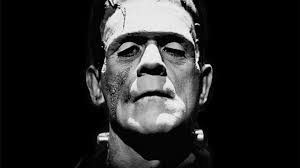James Duesterberg at The Point:
 There’s an essay by the Marxist sociologist John Holloway called “Stop Making Capitalism.” The title’s humor is arresting; it confronts us with a question we might otherwise want to ignore. Why do we continue to create an economic system that we know is bad for us? We might ask the same of liberalism. How do we explain, not to mention justify, the persistence of an ideology that so few seem willing to defend? The critiques of liberalism that have emerged in recent years, so effective at exposing the empty procedures and hypocrisies of an apparently reasonable ideology, raise this question but have trouble answering it. Holloway’s essay suggests another approach, one that directs our attention away from the rational justifications for or against liberalism, and instead toward the desires that liberalism both enables and reflects.
There’s an essay by the Marxist sociologist John Holloway called “Stop Making Capitalism.” The title’s humor is arresting; it confronts us with a question we might otherwise want to ignore. Why do we continue to create an economic system that we know is bad for us? We might ask the same of liberalism. How do we explain, not to mention justify, the persistence of an ideology that so few seem willing to defend? The critiques of liberalism that have emerged in recent years, so effective at exposing the empty procedures and hypocrisies of an apparently reasonable ideology, raise this question but have trouble answering it. Holloway’s essay suggests another approach, one that directs our attention away from the rational justifications for or against liberalism, and instead toward the desires that liberalism both enables and reflects.
Holloway invokes the story of Frankenstein’s monster, which is often taken as an allegory for capitalism. Frankenstein, a mad scientist who creates an artificial man, spends most of his story chasing after his invention or being chased by him; like a regulatory agency, the best he can do is damage control.
more here.
James Duesterberg at The Point:
Holloway invokes the story of Frankenstein’s monster, which is often taken as an allegory for capitalism. Frankenstein, a mad scientist who creates an artificial man, spends most of his story chasing after his invention or being chased by him; like a regulatory agency, the best he can do is damage control.
more here.